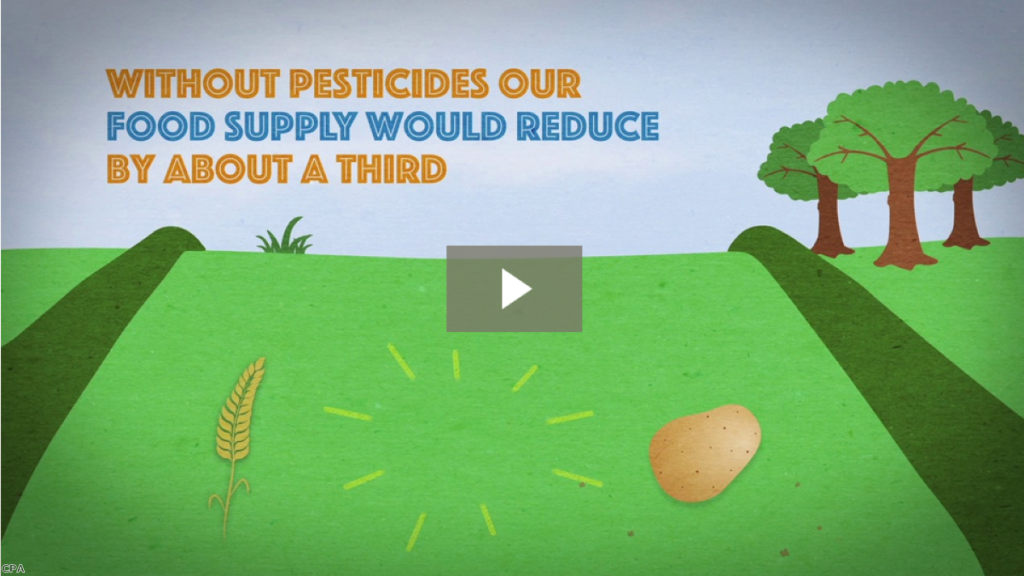Could you eat 12,000 potatoes?
Could you eat 12,000 potatoes?
Animation explaining how Maximum Residue Levels and thorough testing ensure that pesticides are safe for human health and the environment.
Script
Some people may have concerns about the levels of pesticides in the food they eat, but imagine eating 571 servings of apple in one day.
Or 150,000 carrots
12,000 potatoes
Perhaps 2,600 portions of strawberries.
It would be impossible to get anywhere close.
Yet that’s just the volume of fruit and veg you would need to eat before you would suffer any adverse effects from pesticides.
And that’s only if that fruit and veg contained levels of pesticides at what’s known as the Maximum Residue Level or MRL.
The majority of food stuffs do not contain any pesticide residues at all. But where they do, consumers are protected by MRLs, which are a form of trading standard. Nearly all pesticide residues that are detected in food fall well below MRLs.
These are not a safety limit, but are the maximum concentration of pesticides legally permitted on a particular food, indicating that a pesticide has been used correctly.
In practice, MRLs are set well below levels that pose even a small risk to human health. As the facts and figures at the start of this video show, they provide extremely large safety margins.
And it’s important that such margins are in place to protect our health, because pesticides are essential. They enable our crops to compete with 30,000 species of weeds, 10,000 species of insect pests and countless diseases.
Without them our regular supply of food would reduce by about a third, at a time when we need to increase our food production to cope with a ballooning global population.
Because they are used on food, pesticides are among the most thoroughly tested chemicals in the world.
They have to pass strict government tests to be authorised for use.
All of which means it takes around 10 years, costing an average of £160 million to bring a pesticide product to market.
During which time you still won’t have eaten all those carrots.
Let’s keep pesticides in perspective.





-01.png)